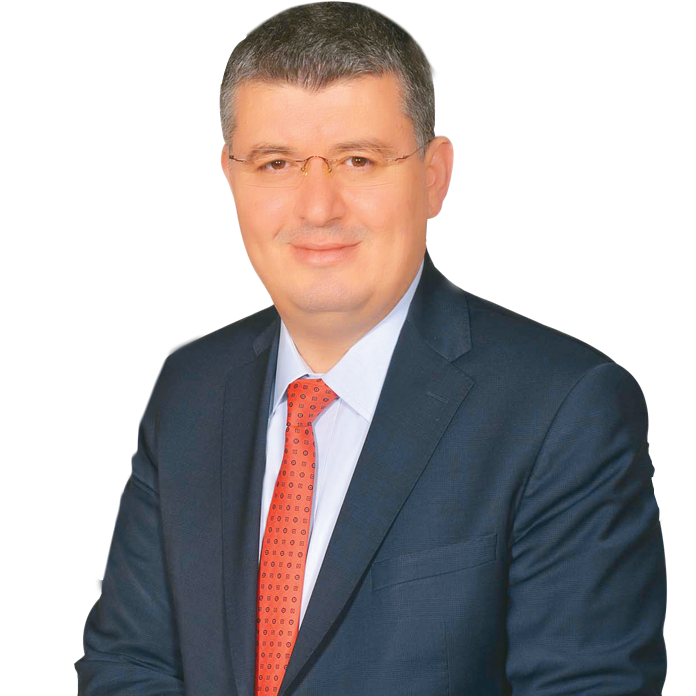More reports now claim that Turkey’s six opposition parties are joining forces to return the country to a parliamentary system.
Let me first ask this:
Are these parties so insistent on returning to a parliamentary system because they truly believe that it is a model that will save Turkey? Or are they concentrating all their energies on this issue because it serves as an ideal “vessel” for these extremely discrepant parties to come together and form a 50 percent parliamentary bloc against the ruling Justice and Development (AK) Party government?
My posing of the question gives away my thoughts on this.
But let me make it even clearer.
These six political parties are trying to “camouflage” their deep-seated differences by making out the presidential system to be the cause of all evil, which seems to be the only common denominator between them.
It is palpable that this is, indeed, the case.
For example, in order to keep both the Good Party and the HDP, which are at two different ends of the political spectrum, working in the same pot toward a common goal, a unity of discourse that will focus attention on that issue is required.
When both the Good Party and the HDP say, "We want a parliamentary system," the stark differences between them are thus covered up and the deflection needed for an electoral alliance is achieved.
This is the main reason why the opposition did not accept President Recep Tayyip Erdoğan's call for a joint constitution last year.
If his call was heeded, they would not have had this issue to rally around.
Therefore, they preferred to tighten their ranks over a constitutional amendment that did not address society at large, but instead only half of it at most, without giving much thought to the debate about how democratic and inclusive it was as a system.
As it is known, under President Recep Tayyip Erdogan, the AK Party attaches importance to regularly checking the public pulse through opinion polls.
A cross-analysis is carried out through not one but multiple pollsters.
In the case of a 50 percent ruling system, surveys have gained even more significance.
Because this is not an easy threshold to attain.
In Turkey, there is a serious faction that can change the outcome from election to election; in other words, it’s a sizable chunk of the population that only votes for the truly deserving.
And the same holds true for this election; this very faction will decide the winner.
There is no precedent in our multi-party political history that resembles the AK Party’s experience so far.
There’s no reason to believe that the 2023 elections will be easier than any of the others for the AK Party, which will have reached its 20-year mark in power in 2022, with all the successes and baggage of the past two decades.
However, just because this is the case, there is no rationality to be found in the opposition of some tendentious firms, which pretend as if it’s all been said and done already.
Two weeks before the June 2015 elections, CHP Chairman Kemal Kılıçdaroğlu, whom I accompanied on his flights to the Trabzon and Karabük rallies, said, "According to the polls we have had the Americans conduct on our behalf, our ratio of the vote has hit 35 percent," but two weeks later, following the elections, his party garnered 25.98 percent of the vote.
Now, let me go over the results of the last four surveys commissioned by the AK Party.
According to the results of these four polls;
AK Party gets 37 to 39 percent,
The CHP gets 23 to 25 percent,
The Good Party gets 11 to 13 percent of the vote.
In these surveys, the HDP is at 9 to 11 percent, while the MHP is polling at 7 to 9 percent.
According to the aforementioned data, if the elections were held this Sunday, we can see that there will be serious competition and could result in a knife-edge atmosphere in terms of the distribution of seats in the Grand National Assembly of Turkey.
As for the results of the public opinion poll conducted for the presidential elections;
When asked, 40 percent said that they would pick Erdoğan as president.
In this open-ended question, the vote share of Ankara Mayor Mansur Yavaş, who came in second place, stands at around 13 percent.
Other names have all fallen behind in the polls.
You can also interpret these results differently: as the data revealing the opposition's “desperate need for an alliance.”
This is what I mean when I say that the main incentive behind the efforts to join forces by calling for a return to a parliamentary system is needed only insofar as winning the elections, rather than changing the system per se.




















